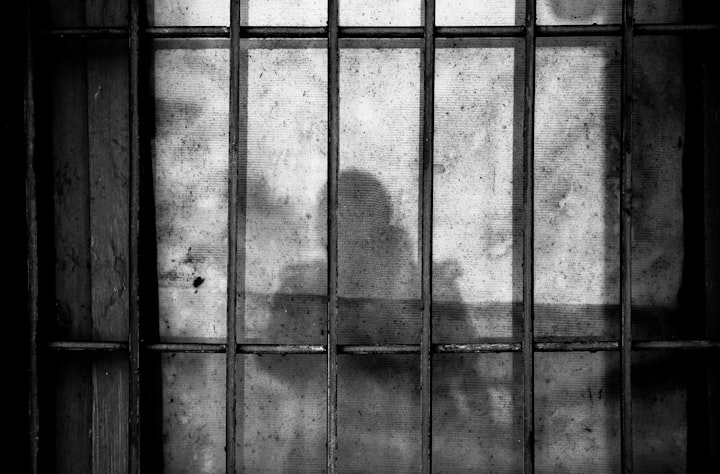Crimes of the Century: Infamous Cases That Shaped History
Throughout history, certain crimes have captured the public's attention and left an indelible mark on society. These cases, known as the "Crimes of the Century," have not only shocked the world but also shaped the course of history. From the mysterious kidnapping of Charles Lindbergh's infant son to the infamous murder trial of O.J. Simpson, these cases have become cultural touchstones, inspiring books, movies, and endless debates. In this article, we will delve into some of the most notorious crimes that have defined the 20th century.
The Lindbergh Kidnapping
Background and significance
One of the most captivating and tragic cases in American history is the Lindbergh kidnapping. In 1932, Charles Lindbergh, a renowned aviator, and his wife, Anne Morrow Lindbergh, experienced every parent's worst nightmare when their 20-month-old son, Charles Jr., was abducted from their New Jersey home. This crime shocked the nation and sent shockwaves around the world. The Lindbergh kidnapping marked the first high-profile "crime of the century" and forever changed the way society approached child protection.
Details of the crime
The Lindbergh case unfolded with a ransom note demanding $50,000 for the safe return of the baby. Despite the payment, young Charles was tragically found dead a few months later. The investigation into the kidnapping was extensive, involving law enforcement agencies from multiple states. The discovery of a ladder outside the Lindbergh home and a subsequent arrest brought a suspect, Bruno Hauptmann, to trial.
Investigation and trial
The trial of Bruno Hauptmann captivated the nation. Hauptmann was ultimately found guilty and sentenced to death, but questions surrounding his involvement in the crime still linger today. The Lindbergh kidnapping case revealed the shortcomings of the legal system at the time, prompting changes in the way evidence was handled and forensic techniques were employed.
The O.J. Simpson Case
Overview of the case
The O.J. Simpson case is perhaps one of the most infamous trials in American history. In 1994, O.J. Simpson, a former professional football player and beloved celebrity, was accused of murdering his ex-wife, Nicole Brown Simpson, and her friend, Ronald Goldman. The trial that followed was a media circus, captivating the nation and highlighting issues of race, fame, and domestic violence.
The murder trial
The O.J. Simpson murder trial lasted for months, with extensive media coverage broadcasting every twist and turn. The defense team, led by high-profile lawyers such as Johnnie Cochran and Robert Shapiro, employed a strategy that focused on the credibility of the evidence and cast doubt on the police investigation. Ultimately, O.J. Simpson was acquitted, but the case continues to spark debate and fascination.
Public fascination and media coverage
The O.J. Simpson case became a media sensation, drawing millions of viewers to their televisions each day. It highlighted the power of the media to shape public opinion and the blurred lines between news and entertainment. The trial also shed light on the racial tensions and inequalities that persist in the criminal justice system.
The Watergate Scandal
Background and events leading up to the scandal
The Watergate scandal, which unfolded in the early 1970s, is a defining moment in American political history. It involved a break-in at the Democratic National Committee headquarters, located at the Watergate complex in Washington, D.C. The events that followed revealed a web of political espionage, cover-ups, and abuse of power at the highest levels of government.
Investigation and fallout
The Watergate scandal led to the resignation of President Richard Nixon, who became the first and only U.S. president to step down from office. The investigation, led by journalists Bob Woodward and Carl Bernstein of The Washington Post, uncovered a series of illegal activities, including the secret taping of conversations in the Oval Office. The revelations shook the nation's trust in its government and marked a turning point in American politics.
Impact on American politics
The Watergate scandal had far-reaching implications for American politics. It led to increased scrutiny of government activities, stricter campaign finance regulations, and a more skeptical public. The scandal also underscored the importance of a free press in holding those in power accountable, cementing the role of investigative journalism in American democracy.
The Manson Family Murders
Charles Manson and his followers
The Manson Family murders, perpetrated by Charles Manson and his followers, remain etched in the public consciousness as one of the most shocking crimes of the 20th century. Manson, a charismatic but deeply disturbed individual, led a cult-like group known as the Manson Family. In 1969, they carried out a series of gruesome murders that shook Los Angeles and left the nation in disbelief.
The Tate-LaBianca murders
Among the most infamous of the Manson Family's crimes were the Tate-LaBianca murders. On the night of August 8, 1969, Manson instructed his followers to carry out a brutal attack on the home of actress Sharon Tate, who was eight months pregnant, and four others. The following night, they committed another savage murder at the residence of Leno and Rosemary LaBianca.
Trials and cultural impact
The Manson Family murders sparked a sensational trial that transfixed the nation. Manson and his followers were ultimately convicted and sentenced to death, although their sentences were later commuted to life imprisonment. The case captured the public's imagination due to its bizarre and cult-like nature. It also marked the end of the innocent and carefree spirit of the 1960s counterculture.
Conclusion
The crimes of the century have had a profound impact on society, shaping history in ways that are still felt today. From the Lindbergh kidnapping that heightened awareness about child abduction to the O.J. Simpson case that exposed deep societal divisions, these cases have left an enduring mark on our collective consciousness. The Watergate scandal and the Manson Family murders brought to light corruption and the dark underbelly of power, forever altering the political and cultural landscapes. As we reflect on these infamous cases, we are reminded of the need for justice, the power of the media, and the importance of remaining vigilant in the face of crime.
Frequently Asked Questions (FAQs)
1. Are there any unsolved crimes of the century?
While many crimes of the century have been solved, some cases remain open and unsolved. One such example is the Black Dahlia murder, which took place in Los Angeles in 1947. The identity of the killer and the motive behind the gruesome murder of Elizabeth Short still remain a mystery.
2. How did the Lindbergh kidnapping case impact child protection laws?
The Lindbergh kidnapping case led to significant changes in child protection laws. In response to the tragedy, the U.S. Congress passed the Federal Kidnapping Act, making it a federal offense to transport a kidnapped victim across state lines. This legislation aimed to enhance the federal government's ability to investigate and prosecute kidnapping cases.
3. What was the lasting impact of the O.J. Simpson case?
The O.J. Simpson case highlighted racial tensions, celebrity influence, and flaws in the criminal justice system. It brought discussions about race and privilege to the forefront and sparked debates on issues such as domestic violence and media sensationalism. The case also had a lasting impact on how high-profile trials are conducted and publicized.
4. Did the Watergate scandal lead to any legal reforms?
Yes, the Watergate scandal resulted in significant legal reforms. The revelations from the scandal led to the passing of the Ethics in Government Act in 1978, which established guidelines for financial disclosures by public officials and created the Office of Government Ethics. It also spurred campaign finance reforms and increased transparency in government activities.
5. How did the Manson Family murders impact popular culture?
The Manson Family murders had a profound impact on popular culture. The gruesome nature of the crimes and the subsequent trial captured the public's imagination. The case inspired numerous books, movies, and songs, solidifying its place in popular culture. The Manson Family's actions also marked the end of the 1960s counterculture and had a lasting impact on society's perception of cults and radical ideologies
About the Creator
Ted Bundy
Welcome to our true crime blog, where we unravel mysteries, explore criminal minds, and share gripping narratives. Join us for captivating investigations and engage in thoughtful discussions on the pursuit of justice.






Comments
There are no comments for this story
Be the first to respond and start the conversation.